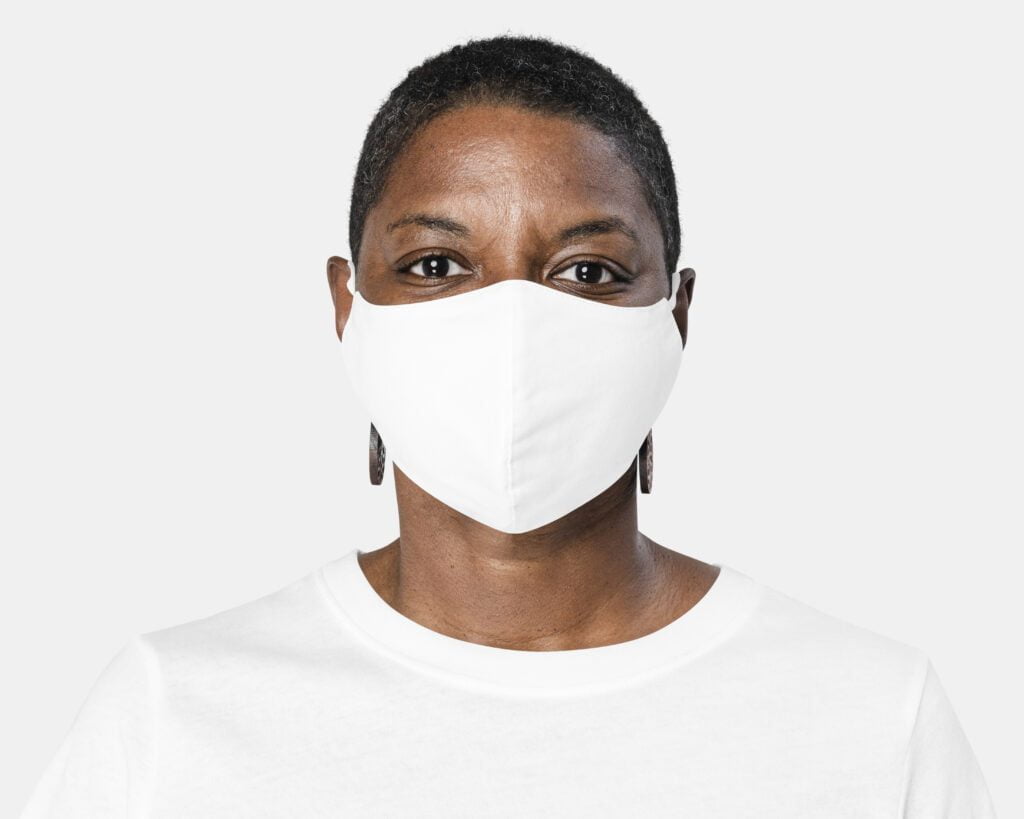As part of collected efforts to slow down the spread of Diphteria infections across the country, the Federal Government has urged States to reintroduce compulsory use of face masks in public gatherings.
Lafiya360 reports that as of October 3, 2023, a total of 8,406 confirmed cases have been reported from 19 states and 114 Local Government Areas (LGAs) across the country.
The breakdown of the affected States are: Kano, 7,188 (86 per cent); Yobe, 775; Katsina, 232; Borno, 118; Jigawa, 23; Bauchi, 20; Kaduna, 17; Lagos, 8; FCT, 6; Gombe, 5; Osun, 3; Sokoto, 3; Niger, 2; Cross River, 1; Enugu, 1; Imo, 1; Nasarawa, 1; Zamfara, 1; and Kebbi, 1.
The government further disclosed that Kano State is currently the epicentre of the diphtheria outbreak, as the state has reported 7,188 confirmed cases out of all the confirmed cases in the country, representing 86 per cent of the total infection.
Diphtheria is a highly contagious vaccine-preventable disease caused mainly by Corynebacterium diphtheria but also by Corynebacterium ulcerans. It spreads between people mainly by direct contact or through the air via respiratory droplets. The disease can affect all age groups; however, unimmunized children are most at risk.
Symptoms often come on gradually, beginning with a sore throat and fever. In severe cases, the bacteria produce a poison (toxin) that causes a thick grey or white patch at the back of the throat. This can block the airways, making it hard to breathe or swallow, and also creates a barking cough. The neck may swell in part due to enlarged lymph nodes.
Speaking during the diphtheria emergency task force briefing in Abuja, the Co-Chair of the task force on diphtheria, and Executive Director of the National Primary Health Care Development Agency (NPHCDA), Dr. Faisal Shuaib stressed that the government believes that vaccination is our most formidable weapon against diphtheria.
He, therefore, disclosed that the country has two vaccines at its disposal: the Pentavalent vaccine, administered to children aged 6 weeks to 4 years, and the Tetanus-diphtheria (Td) vaccine, provided to children aged above 4 years to 14 years.
He further revealed that in recent months, the government launched rapid and comprehensive vaccination campaigns across the affected regions.
He said, “Kano, as the epicenter of this outbreak, has been at the forefront of our vaccination efforts. Working with the State Governments, we implemented rounds 1 and 2 of the vaccination campaign in five high-burden Local Government Areas (LGAs) in February and April 2023 respectively. Subsequently, round 3 was integrated with routine immunization intensification, further bolstering our response. An additional 8 LGAs in Kano underwent reactive vaccination exercises in the last week of August.
“Beyond Kano, we expanded our response to include Kaduna, Katsina, Bauchi, and Yobe in our Phase One response. These states engaged, trained, and executed vaccination campaigns in 25 high-burden LGAs within their borders with the commencement of reactive vaccination in August 2023. Borno State also conducted reactive vaccination exercises in four LGAs during the same period.
“Diphtheria is an airborne disease. Like COVID-19, we can reduce air contact with the bacteria by adopting non pharmaceutical intervention such as the use of facemasks, handwashing and physical distancing from affected persons. However, this should be done in a way that does not stigmatize nor discriminate against sick people.
“Accordingly, I would like to call on Governors of affected states to institute face covering requirements such as facemasks in public gatherings. By so doing, we can add another intervention to slow the progress of the outbreak.”
In his remarks, the Director-General of the Nigeria Centre for Disease Control and Prevention (NCDC), Dr. Ifedayo Adetifa said, “As of today, the 3rd of October 2023, there have been 13,204 reported suspected cases out of which 8,406 were confirmed cases from 114 Local Government Areas in 19 States including the FCT.
“Of the 8,406 confirmed cases, 6,202 (73.7 per cent) were aged 1-14 years. Infants: less than 1 per cent, 1-4 years: 14.40, 5-9 years: 32.2 per cent, 10-14 years: 27.1 per cent, Adults above 20 years: 15 per cent.
“Our records have shown that most of the confirmed cases of Diphtheria in the country were unvaccinated against Diphtheria. Of the 8,406 confirmed cases, 5,371 (64 per cent) are either unvaccinated or partially vaccinated, 966 (11 per cent) with unknown vaccination status, while 2,069 (25 per cent) are fully vaccinated against diphtheria.
“The recently deployed NRRT is offering on-site surveillance and response support to affected States in areas of active case search in communities and health facilities.
“Security challenges are however limiting accessibility of some teams to some locations in affected LGAs across States.”
WHO’s Deputy Country Representative, Alexander Chimbaru, added, “It is very critical to bring traditional, religious and community leaders to support vaccination of children. Diphtheria is a highly infectious disease and a cause for concern. The vaccines being used now are safe and effective.
“Nigeria has the pentavalent vaccine. We applaud the government for providing the vaccines free of charge. We will support in surveillance and coordination of activities in terms of communication and community engagement. We need to have the communities coming on board to tackle the disease.”
Mary Boyd, the Country Director of the United States Centres for Disease Control and Prevention (USCDC) said, “I commend the government for setting up the task force for diphtheria. In Nigeria, we are seeing quite a number of deaths, up to 14 years. We are not just addressing the specific outbreak but also building systems that will help the country to better response to future outbreak.
“I am hopeful that we will come out of this soon and that neighboring countries can take a cue from Nigeria in response to the outbreak. We need to promote vaccination; families must prioritize bringing their babies to health centres for vaccination.”


